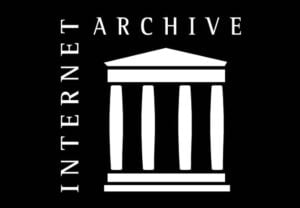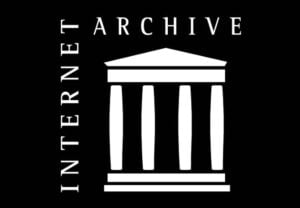
The Internet Archive is doubling down on its position that its digital lending library service operates under the bounds of fair use. Major publishers assert that digitizing books without appropriate licensing amounts to infringement but IA counters that the practice is in the public interest. It also fits copyright’s ultimate purpose; to promote the broad public availability of literature and other arts.
The Internet Archive is right up there with Wikipedia in terms of public good they have done.
It’s a travesty thet they even need to fight this.
Ultra-Capitalists gonna ultra-capitalize…
I really feel like we need to have a huge overhaul of copyright law in general, it seems like it’s all a mish-mash of old laws from before the internet existed, patched over with half-assed rules that we’ve just been making up as we go along since then.
Some of it is absurd to me, like the way something can be online but geographically restricted. I’ve had the situation in the past where I want to watch a movie trailer, but I can’t because I’m in Canada and not the US, even though the movie is also out in Canada. It’s so pointless and easily circumvented, and all it does is annoy people. Or that something can still be copyrighted almost a century after the author is dead.
And to get back to the point, we also really need to make some kind of exemption for archival purposes. So much information, art and cultural heritage is lost because copyright holders don’t look after the stuff they own and don’t want to pay to preserve it properly. The internet could be one of the best archival tools we’ve ever had, if we’d just let it do its thing IMO.
Don’t forget that legally we count corporations as people, and corporations can live on indefinitely.
Originally copyright provided a monopoly for 14 years, plus one optional 14 year extension.
A ground-up overhaul of the copyright system would make things so much worse, not better, considering the current climate of power. In the US for example, MPA, RIAA, Entertainment Software Association, Association of American Publishers, and others wouldn’t want public libraries or the used market to exist at all; they would push for making every single transfer of “ownership” on any media involve a payment to the rights holder. Lawmakers are far more likely to accommodate those groups’ desires than the public good.
The worst parts of the current copyright system are the most recent. Both the DMCA and the extension of US copyright term to 95 years took effect in 1998, and the early 2000s saw many other countries passing laws to make their copyright system closer to US’s in various ways such as the WIPO Copyright Treaty which took effect in 2002 and EU’s 2006 Copyright Directive. Just about the only positive news we’ve seen in US copyright law since then is in temporary exemptions to DMCA’s anti-circumvention rules (Section 1201) which change every year. Copyright law was far less hostile to consumers and the public before the 90s than it is now, and up until 1976 it used to be expected that most media someone consumes would enter public domain within their lifetime.
The digital era makes market relevance far more ephemeral than ever and yet the laws written for the digital era moved copyright in the opposite direction. Movie studios simultaneously judge whether a film succeeded almost exclusively based on its first week of ticket sales and also claim that depriving public domain for 95 years is necessary. Nothing should be able to justify more than 20 years of copyright. Media formats don’t even last as long as copyright; CDs and DVDs rot, game cartridges die, servers shut down, and even books printed on today’s low-quality paper will fall apart.
Some of it is absurd to me, like the way something can be online but geographically restricted.
This is a consequence of contract terms moreso than copyright. One issue in copyright law that this does connect to, though, is the fact that the question of whether the rightsholder keeps a work reasonably available on the market does not impact whether the work retains copyright protections. If copyright law did hypothetically include that limitation, providers would become far more likely to make sure that all content is available in all countries, but even then things could still vary in terms of which content is on which platform.
The Handmaid’s Tale is breathing down our necks.
Love how they go after a resource that companies have had to use in the past when they’ve lost copies of their own data.
Oh, for crying out loud, Internet Archive. This is not the fight you should be fighting.
The Internet Archive is the steward of an incredibly valuable repository of archived information. Much of what it’s got squirrelled away is likely unique, irreplaceable historical records of things that have otherwise been lost. And they’re risking all of that in this quixotic battle to share books that are widely available anyway and not at all at risk.
“Lending” out those books in the way that they did was blatant copyright violation spitting directly into the eye of publishers known to be litigious and vindictive. All to fight for a point that’s not part of their mandate, archiving the Internet. They’re going to lose and it’s going to hurt them badly.
Each copy can only be loaned to one person at a time, to mimic the lending attributes of physical books.
Internet Archive believes that its approach falls under fair use but publishers Hachette, HarperCollins, John Wiley, and Penguin Random House disagree. They filed a lawsuit in 2020 equating IA’s controlled digital lending operation to copyright infringement.
That is not what the lawsuit was about, Internet Archive. If you’re going to fight this fight then be honest about what exactly you’re fighting for. The lawsuit in 2020 was not about one-person-at-a-time lending, it was about your “COVID Emergency Library” where you removed all restrictions and let people download books freely.
I strongly believe that copyright has gone berserk of the decades and grown like an uncontrolled weed, harming the intellectual commons for the sake of megacorporations’ profits. I’m a subscriber on this piracy community, after all. I believe in the position that Internet Archive is fighting for here, despite all the downvotes I’m surely about to be hammered with. But they shouldn’t be the ones fighting it. Let someone else take this one on. Sci-Hub or Library Genesis, maybe.
They may get badly beaten, and it may well be about their COVID policy, but that’s about where I stop agreeing. But ianal, just an average consumer, so there’s that
Uh, they’re being sued for over $200 Billion. What do you expect them to do, not fight it?
They’ve already shut down the “Emergency Library” they are being sued over, but the plaintiffs aren’t dropping the suit.
If losing this lawsuit destroys the IA, you should want them to fight like hell to win.
I expect them to not provoke the $200 billion lawsuit in the first place. They should never have done the “Emergency Library”, it was an obvious boneheaded decision.
Then, once they had done it and the inevitable lawsuit came down on them, they should have tried to settle the lawsuit. Not fight to the bitter end, not double down. They’re only making it worse for themselves. It’s not simply losing the lawsuit that could destroy them, it’s refusing to negotiate.
The emergency library followed the same legal framework that ebook lending follows at local libraries.
A library owns x many copies of a book, and they remove some percentage of them from circulation so that they can leverage them to lend digital copies (usually via Libby).
All IA did was coordinate with libraries that were closed due to COVID to allocate a portion of their uncirculated books for IA’s lending system. It was never uncapped, and even used DRM to protect against piracy like Libby does.
Every book that was lended had a physical copy deliberately uncirculated for the purpose of allowing redistribution. It was entirely legitimate, and I commend them for doing it.
Publishers are already trying to fight against libraries that they feel threaten their profitability. This attack against IA is just a test case for going after local libraries, and Libby next. I want IA to fight this and win, because we’re fucked on multiple levels of they lose.
Don’t blame IA for fulfilling their mission to make knowledge free. Blame capitalists for attacking libraries in an attempt to make knowledge less free.
The emergency library followed the same legal framework that ebook lending follows at local libraries.
No, it did not. From the Wikipedia article:
On March 24, 2020, as a result of shutdowns caused by the COVID-19 pandemic, the Internet Archive opened the National Emergency Library, removing the waitlists used in Open Library and expanding access to these books for all readers.
Emphasis added. They took the limits off.
What the libraries do is already in a legal grey area, the publishers just don’t go after it because it’s more trouble than it’s worth and would bring bad press. Like how most rightsholders ignore fanfiction. But the IA went way beyond that and smacked them in the face.
Don’t blame IA for fulfilling their mission to make knowledge free.
Their mission is archiving the Internet. a mission that they are putting at risk with this stunt.
I think you might be confused, albeit by a poorly written Wikipedia article.
First of all, it isn’t clear what it is meant by “removing the waitlists and expanding access to all readers”. It doesn’t seem to mean uncapping loans without backing them with physical books. In fact, the part of the wiki you quoted is the first of two mentions of the word “waitlist”, a word that doesn’t appear in either of the sources cited for those sections.
- https://www.authorsalliance.org/2023/03/20/judge-hears-oral-arguments-in-hachette-book-group-v-internet-archive/
- https://www.eff.org/files/2023/03/29/188_opinion.pdf
In fact, the first cited source says this:
IA’s attorney argued that the publishers had not offered empirical evidence of market harm in this case, focusing on the fact that when a library lends out a CDL scan, it does so in lieu of a physical book, “simulating the limitations of physical books.” This is due to CDL’s “owned to loaned” ratio requirement: a library can only loan out the number of CDL scans as it has physical books in its collection, and can only loan these scans out to one patron at a time.
And this:
Plaintiffs discussed what they see as massive financial harm stemming from IA’s CDL program, which they estimated to amount to “millions of dollars in licensing revenues.” Plaintiffs also emphasized that, were CDL “given the green light,” or upheld as a fair use, the plaintiffs would suffer even greater losses.
And this:
CDL is a longstanding and established practice, which has seen adoption and growth in libraries across the country while the ebook licensing market has continued to thrive.
So it seems easy for me to conclude, having checked Wikipedia’s sources, that the plaintiffs are challenging the Open Library CDL system itself, as a threat to their profits, even though IA was playing by the same rules as every other library system, and that IA losing this fight will be a major blow to libraries across the country:
The judge also questioned whether CDL actually could represent such a loss: the publishers’ argument rests on the premise that libraries loan out CDL scans in lieu of paying to license ebooks, and were CDL not permitted under the law, IA and other libraries would instead choose to pay licensing fees to lend out ebooks. The judge pointed out that the result might in fact be that libraries would choose not to lend digital copies of works out at all, or would instead lend out physical books, undercutting the lost licensing revenue argument.
Tl;Dr: Everything I said was correct, and the publishers want to establish precedent that definites physical books and ebooks and separately licensed so that libraries lend out fewer books, and/or have to pay more to loan out the same number of books that they currently do. They just chose IA as the first target hoping that smaller libraries will be forced into compliance should they win.
Also, someone who knows how to effectively edit Wikipedia articles needs to overhaul that page, because it seems intentionally written to make IA look like they did something much worse than they actually did.
As I said, the “traditional” CDLs were also in a legal grey area. But once the publishers are suing IA for going full Library Genesis anyway, why not also include those?
I went back to one of the older articles I could find on this subject, from before the lawsuit was filed. Some particularly-relevant excerpts:
Until this week, the Open Library only allowed people to “check out” as many copies as the library owned. If you wanted to read a book but all copies were already checked out by other patrons, you had to join a waiting list for that book—just like you would at a physical library.
Of course, such restrictions are artificial when you’re distributing digital files. Earlier this week, with libraries closing around the world, the Internet Archive announced a major change: it is temporarily getting rid of these waiting lists.
…
James Grimmelmann, a legal scholar at Cornell University, told Ars that the legal status of this kind of lending is far from clear—even if a library limits its lending to the number of books it has in stock. He wasn’t able to name any legal cases involving people “lending” digital copies of books the way the Internet Archive was doing.
…
The legal basis for the Open Library’s lending program may be even shakier now that the Internet Archive has removed limits on the number of books people can borrow. The benefits of this expanded lending during a pandemic are obvious. But it’s not clear if that makes a difference under copyright law. “There is no specific pandemic exception” in copyright law, Grimmelmann told Ars.
Ironically the FAQ that Internet Archive put online has been taken down, but I found it in their Wayback Machine. It says:
The library will have suspended waitlists through June 30, 2020, or the end of the US national emergency, whichever is later. After that, waitlists will be dramatically reduced to their normal capacity, which is based on the number of physical copies in Open Libraries.
So it seems pretty clear to me that by “suspending waitlists” it means that they’re going to “lend” more copies simultaneously than they actually have.
The Internet Archive had been poking a bear with a stick for years and the bear had been grumbling but not otherwise responding. So they decided to try giving it a whack across the nose with the stick instead. Normally I’d just sigh and shake my head at their stupidity, but they’re carrying a precious cargo on their back while they’re needlessly provoking that bear, and now they’re screaming “oh no my precious cargo! Help me!” While the bear has a firm grip on their leg. That makes me extra frustrated and angry at them for doing this.
I’m not siding with the bear here, I should be very clear. The publishers are awful, the whole concept of copyright has become corrupt and broken, and so on and so forth. But the Internet Archive isn’t supposed to be fighting this fight. They were supposed to be protecting that precious cargo, and provoking the bear is the opposite of doing that.
My thoughts exactly, they’re risking burning down the library of Alexandria to fight a battle they’re unlikely to win.
Someone has to fight that fight, because it is about IA’s primary mission as well. And guess what? I don’t see you doing it.
🏅






